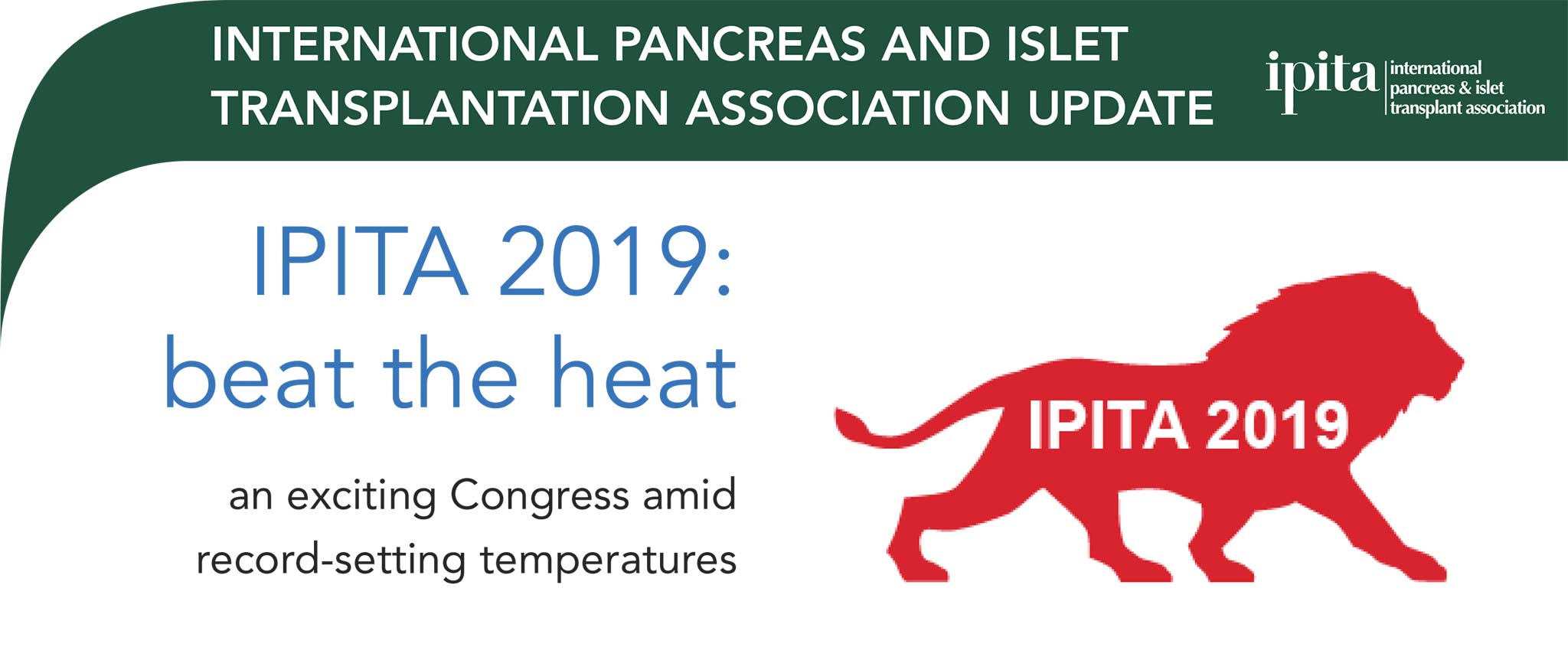On July 2-5, Catholic University in Lyon, France, hosted the 17th World Congress of the International Pancreas and Islet Transplant Association. Nearly 350 attendees from over 30 countries and 5 continents discussed the latest developments in beta cell replacement to treat type 1 diabetes. It was an exciting time, as Southern France was in the midst of a record heatwave with temperatures to 45.9˚C, IPITA shared Lyon’s international stage with the FIFA Women’s World Cup semifinals in which the US team prevailed over a spirited UK team.
The Congress began with a pre-meeting focused on follow-up of the consensus conference held by IPITA in Igls, Austria, in 2017 that established a paradigm to define post-transplant beta cell function; such criteria have long been lacking in the field and will facilitate scientific comparison of outcomes of various approaches to beta cell replacement. The meeting proper centered on advances in pancreas and islet transplantation as well as new developments in artificial pancreas, stem cells and beta cells, xeno-islets and blastocyst complementation to generate human organs in animal hosts.
Several highlights from the meeting merit specific mention. First is the fine work of the Young Investigators Committee (YIC) which not only developed and ran an excellent pre-meeting pancreas recovery simulation session, but also orchestrated the “Cavemen versus Dinosaurs” debate forum during which the YIC Cavemen challenged long-held dogma about pancreas and islet transplantation that the more mature Dinosaurs tried to defend; it was an epic battle in which both sides claimed victory.

